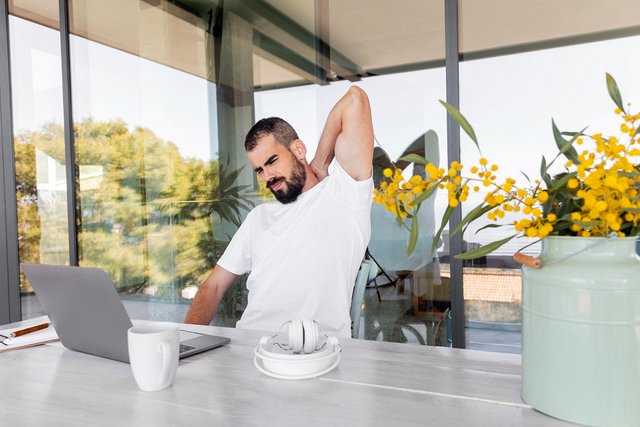How to Build a Healthy Work-Life Balance

In today’s busy world, it’s easy to get caught up in work, leaving little time for personal life or relaxation. But maintaining a healthy work-life balance is crucial for your mental, emotional, and physical well-being. In this article, I’ll share how you can create a balance between work and personal life to reduce stress, boost productivity, and improve your overall quality of life.
What Is Work-Life Balance?
Work-life balance is the ability to divide your time and energy between work, family, hobbies, and other personal activities. It’s about creating a balance that allows you to perform well at work while also having time to relax, spend time with loved ones, and pursue things that bring you joy.
Key Point: Achieving work-life balance means not letting work consume all your time and energy, but also not neglecting your personal needs.
Why Is Work-Life Balance Important?
A healthy work-life balance is important because it helps reduce stress and prevent burnout. When you spend too much time focusing on work, you can become mentally and physically exhausted. On the other hand, having a balanced life allows you to feel more fulfilled, happier, and more productive both at work and in your personal life.
Key Point: Good work-life balance helps you stay healthy, motivated, and happy.
Set Clear Boundaries
One of the first steps in building a healthy work-life balance is setting clear boundaries between work and personal time. This means defining when your workday starts and ends and sticking to it. Try not to check emails or take work calls once your work hours are over.
Key Point: Setting boundaries helps you separate work from personal life and reduces the temptation to bring work home.
Learn to Say No
Sometimes, we take on too many tasks because we feel obligated to say yes. However, saying yes to everything can lead to burnout. It’s okay to say no to work demands, social events, or commitments that don't align with your priorities.
Key Point: Saying no is a powerful tool for maintaining your balance. It’s important to know your limits.
Make Time for Yourself
In order to maintain balance, you need to make time for yourself. Whether it’s reading a book, going for a walk, or practicing yoga, doing something you enjoy is important for your mental and physical health. Schedule “me-time” just like you would an important meeting.
Key Point: Personal time is essential for recharging your energy and maintaining your overall well-being.
Prioritize Your Tasks
Not everything on your to-do list is equally important. Learn to prioritize tasks based on deadlines and importance. By focusing on the most critical tasks first, you can avoid feeling overwhelmed and have more time for yourself and loved ones.
Key Point: Prioritizing tasks helps you stay focused and efficient, leaving more time for personal activities.
Take Regular Breaks
Taking regular breaks during work is essential for maintaining productivity and mental clarity. Whether it’s a short walk, stretching, or just stepping away from your desk, taking breaks throughout the day can reduce stress and improve focus.
Key Point: Short breaks can help you stay refreshed and increase productivity in the long run.
Delegate and Ask for Help
If you’re juggling too many tasks, don’t be afraid to delegate. At work, ask your colleagues for help or share the workload with your team. At home, ask family members to pitch in with chores. Delegating tasks allows you to focus on what’s most important.
Key Point: Asking for help or sharing responsibilities is a great way to avoid feeling overwhelmed.
Use Technology to Your Advantage
Technology can be a double-edged sword, but it can also help you maintain work-life balance. Use apps for time management, reminders, or scheduling to keep track of your tasks and ensure that you’re not overloading yourself. At the same time, turn off notifications when you’re not working to avoid distractions.
Key Point: Technology can help you stay organized and manage your time, but be mindful not to let it interfere with personal time.
Know When to Unplug
We live in an era where we’re always connected through our phones and computers. However, constant notifications and messages can increase stress and prevent relaxation. Set time aside where you completely unplug from work, social media, and screens. It will help you recharge.
Key Point: Unplugging from technology gives your mind a break and helps you be more present in the moment.
Conclusion: Balance Takes Practice
Achieving a healthy work-life balance isn’t something that happens overnight. It takes practice, commitment, and ongoing adjustments. By setting boundaries, prioritizing your tasks, and taking care of yourself, you can create a balanced life that supports both your career and your personal happiness.
Key Point: A healthy work-life balance requires conscious effort and self-care, but it leads to greater satisfaction and well-being.
Upvoted! Thank you for supporting witness @jswit.
It is very difficult to maintain a balance in life, today our life has become a rush